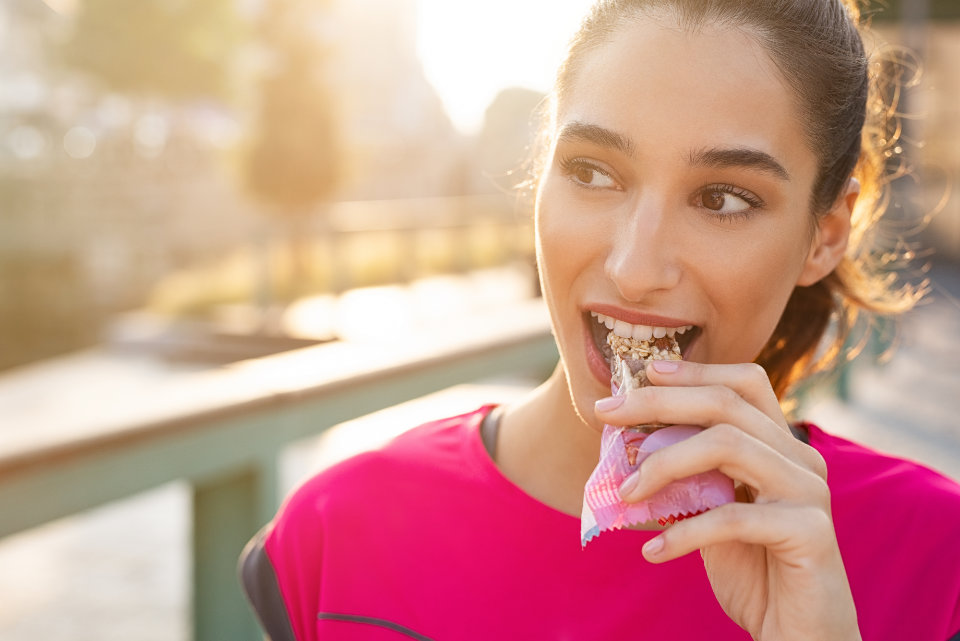Taking on any new exercise regime is about making a few mistakes, about trying things out, getting things wrong, and feeling out what works for you. If you have recently taken up running, there’s a high chance you’re also reviewing your diet and trying to get a sense of how you can adjust it to better fit with your new routine.
Here are a few of the most common mistakes which you might want to steer clear of to keep yourself healthy and happy, and ensure you’re getting the most out of your workout.
1. Not Eating Enough Vegetables
When you start running, you often crave unhealthy foods, because you’re tapping into your body’s fat supplies, and your body wants to replace them.
It will ask for sugary or fatty meals to top up those reserves again, but you have to try and ignore that and make sure that you put in the work for better health at both ends – exercise, but also eat well. A good, balanced diet will provide you with the nutrients your body really needs to maintain exercise levels.
2. Eating Whatever You Want
Don’t get tempted to reward yourself with a big pizza after a run, or to scoff a packet of biscuits because you’ve burned off some energy. “Treats are fine and it’s healthy to be flexible with your diet – being too strict can sometimes lead to problems like binge eating – but keep an eye on your diet and don’t go overboard.
Remember that you have to work to keep the fat off, and calories will still add up, whether you’re exercising or not” says Sabrina Irby, a Sports writer.

3. Not Eating Enough
Even if your goal is to lose weight, make sure you fuel your body. Starving yourself won’t really help with quick weight loss, but it will undermine your ability to exercise and feel good – and exercise is a faster way to burn excess fat.
If you don’t eat, you won’t feel up to working out, so make sure you aren’t skipping meals for the sake of speeding up your weight loss journey.
4. Depending On Processed Foods
Although sporty foods do have their place and can be useful, pay attention to what you’re eating and how often. If you consistently grab an energy bar instead of making yourself a meal, you need to address that.
Everything in moderation – those things which are geared at sports nutrition are fine to use, but don’t let them replace a good diet with plenty of fresh fruit and vegetables. If you struggle to cook regularly with fresh food, batch cook and freeze meals so you can grab something easily even if you’re tired from exercising.
5. Poor Post-Workout Diet
Pay special attention to what you eat after you exercise. This is when you are most vulnerable to unhealthy foods as you’ll feel tired, and also feel you have earned a reward.
Your body is highly receptive to nutrients at this point, so what you eat will have a big impact.
6. Rushing
Although you may come to your new routine full of enthusiasm and energy, keen to achieve everything at once, remember that slow and steady wins the race. “When it comes to improving your diet, make small changes which you can stick to, and build up over time.
If you’ve decided to cook food at home more, look at ways of working on this until you’re satisfied the habit will stick. Make changes to your routine gradually, even if you feel ready for more challenging ones,” comments Joseph Wade, a Sports blogger.

7. Rigidity
Although it’s important to look at your numbers, check your daily intakes of different nutrients, and build yourself a diet plan you can stick to, do allow yourself a little flexibility, or you will probably snap suddenly, and ruin your diet and hard work. Be kind to your own desires, and allow yourself the occasional treat.
Starting a new exercise routine can be exciting but challenging for anyone, so try to make it easy for yourself where you can be ensuring your diet reflects your body’s needs.
Remember that you will get out what you put in, so feed your body well, ensuring your workout will be balanced, and you will keep yourself healthy.





